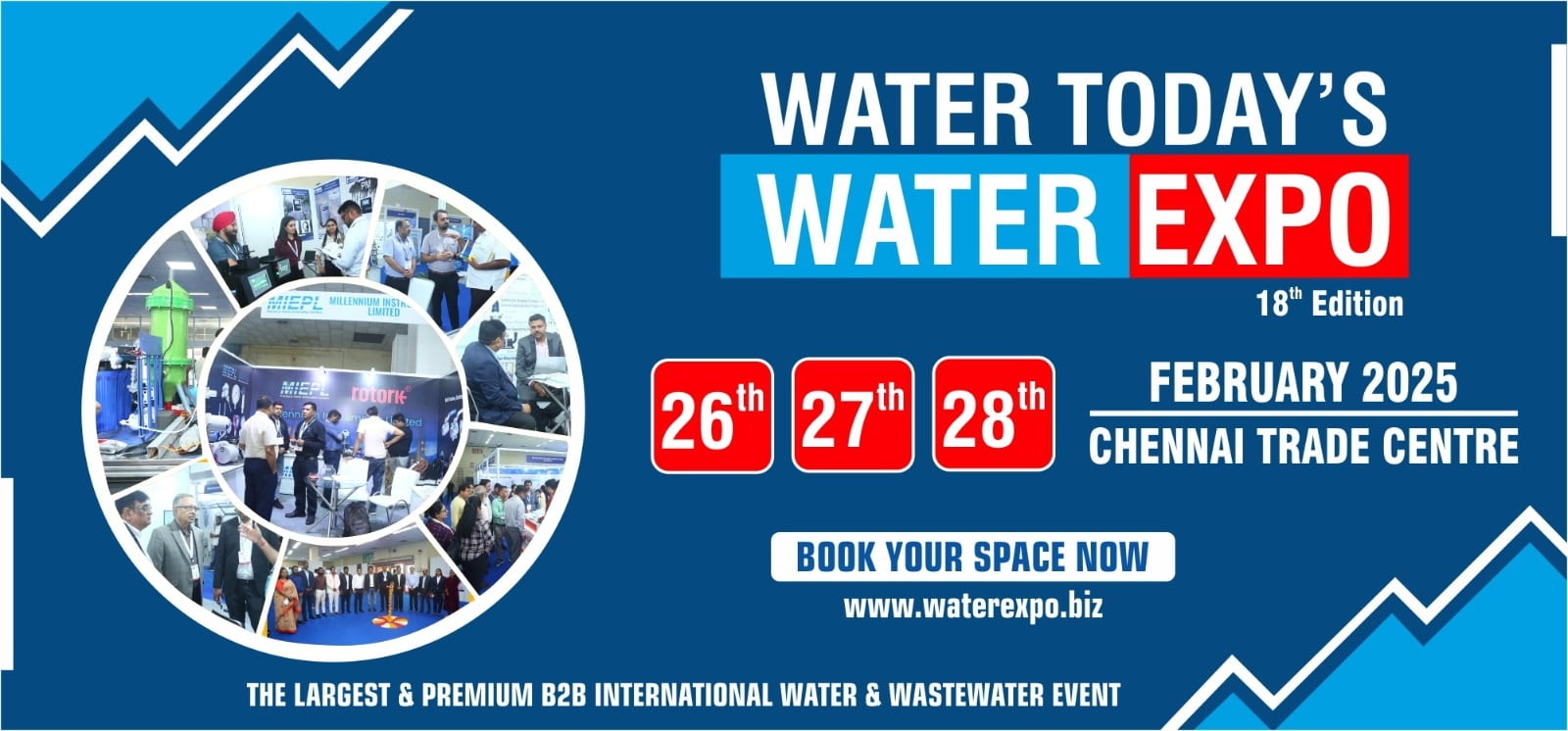Can Digitalization Prevent Water Issues? Exploring the Role of Technology in Water Management
Can Digitalization Prevent Water Issues? Exploring the Role of Technology in Water Management
Water is one of the most critical resources we have, yet access to clean and sustainable water supplies is under constant threat due to population growth, climate change, and industrial demands. In the face of these challenges, digitalization is emerging as a transformative force in the water management sector, offering innovative ways to optimize usage, reduce wastage, and address water quality issues. In this blog, we’ll explore how digital technologies like IoT, AI, and big data are playing a crucial role in preventing and mitigating water-related issues.
1. Smart Water Monitoring with IoT
1. Smart Water Monitoring with IoT
The Role of IoT in Water Management: The Internet of Things (IoT) has revolutionized water monitoring by enabling real-time data collection from sensors installed in pipes, tanks, water treatment facilities, and even natural water bodies. These sensors measure key parameters such as flow rate, pressure, pH, and contaminant levels.
Preventing Water Issues: IoT systems provide continuous data, allowing for immediate detection of leaks, pressure drops, or contamination. Early detection enables swift action, helping industries, municipalities, and households prevent water losses and protect water quality.
2. Predictive Analytics with Artificial Intelligence
2. Predictive Analytics with Artificial Intelligence
Harnessing AI for Prediction: AI-powered predictive analytics can analyze large data sets to forecast water demand, detect unusual usage patterns, and predict equipment failures. For instance, in water treatment plants, AI models can anticipate when filters or other components are likely to fail, ensuring timely maintenance.
Preventing Water Issues: Predictive analytics help organizations optimize water resources, reduce costs, and prevent crises like equipment breakdowns or sudden spikes in demand. This is especially critical in drought-prone areas where water management is essential for sustainable supply.
3. Data-Driven Water Quality Control
3. Data-Driven Water Quality Control
Utilizing Big Data for Quality Control: Big data allows water managers to analyze massive amounts of information collected from various sources, including IoT sensors, climate data, and historical water quality records. With data-driven insights, they can track changes in water composition, contamination levels, and the impact of weather on water supplies.
Preventing Water Issues: By monitoring water quality in real-time, digital platforms can help in identifying and addressing pollution sources, improving regulatory compliance, and ensuring safe water for communities and industries. Data-driven quality control also supports early detection of harmful contaminants, safeguarding public health.
4. Remote Management and Automation
4. Remote Management and Automation
Automation for Efficient Operations: Many water facilities now integrate automation technologies to manage processes like filtration, disinfection, and pumping without constant human oversight. Automation can handle repetitive tasks, maintain consistent water quality, and minimize human error.
Preventing Water Issues: Remote management and automation enable water managers to respond quickly to changing conditions, such as high rainfall or drought. For example, during heavy rains, automated systems can adjust operations to prevent overflow in wastewater plants, thus preventing contamination of local water bodies.
5. Water Conservation Through Smart Infrastructure
5. Water Conservation Through Smart Infrastructure
Innovative Smart Infrastructure Solutions: Digitalization has also paved the way for smart infrastructure, which includes smart pipes, pumps, and meters designed to optimize water distribution and consumption. Smart meters, for instance, provide households and industries with detailed insights into water usage patterns, helping them identify areas for conservation.
Preventing Water Issues: By using smart meters and infrastructure, cities can reduce non-revenue water (water lost before reaching consumers due to leaks or theft), improve distribution efficiency, and promote conservation. For consumers, the insights provided by smart meters encourage responsible usage and reduce overconsumption.
6. Tackling Climate Challenges with Digital Twins
6. Tackling Climate Challenges with Digital Twins
What Are Digital Twins? A digital twin is a virtual model that mirrors a physical system. In water management, digital twins can simulate an entire water network, from sources and storage facilities to treatment plants and distribution systems.
Preventing Water Issues: By simulating different scenarios, digital twins allow water managers to prepare for climate-related risks, such as floods, droughts, and contamination. They can test the impact of new infrastructure, predict vulnerabilities, and ensure that water systems are resilient against extreme weather events.
Case Studies: Digital Success in Water Management
Case Studies: Digital Success in Water Management
- Singapore’s Smart Water Network: Singapore has developed an advanced smart water network, integrating IoT, sensors, and data analytics to detect leaks, optimize supply, and improve water quality. This has helped the city-state maintain a secure water supply despite limited natural resources.
- Predictive Maintenance in the UK’s Water Utility Sector: Several UK water utilities are using AI-driven predictive maintenance systems to reduce downtime in water treatment facilities, thus enhancing service reliability and reducing operational costs.
- Smart Meters in California: California has installed smart water meters across multiple regions to combat drought and promote water conservation. These meters have enabled residents to monitor their usage in real-time, leading to a substantial reduction in water consumption.
See live demonstrations of greywater recycling systems in action at the Water Expo 2025! From small-scale units for smaller facilities to large-scale industrial systems, witness firsthand how these solutions can seamlessly integrate into your processes. The Expo will feature case studies and panels where industry leaders share how greywater recycling has transformed their operations. Get a practical understanding of the challenges, benefits, and future trends in greywater recycling.
Challenges and Considerations
Challenges and Considerations
While digitalization offers tremendous benefits, there are challenges to its implementation:
- High Initial Costs: Adopting digital technologies can require significant investment, which may be a barrier for smaller utilities and rural areas.
- Data Privacy and Security: With large amounts of data collected, ensuring the security and privacy of sensitive information is essential.
- Skill Requirements: Managing digital water infrastructure demands skilled personnel who understand data analysis, IoT, and automation technologies.
As the demand for sustainable water solutions intensifies, Water Today’sWater Expo Chennai 2025 serves as the perfect platform to witness how cutting-edge technologies are transforming water management. Scheduled from 26 – 28 February 2025, this event brings together innovators, industry leaders, and policymakers to showcase and explore the latest advancements in water technology. Discover state-of-the-art solutions like IoT-enabled water monitoring systems, AI-powered analytics, and advanced filtration technologies designed to optimize water use, prevent wastage, and ensure quality. Connect with water technology leaders, solution providers, and decision-makers. Exchange insights on trends, best practices, and collaborative strategies for sustainable water management.
The Future of Digital Water Management
The Future of Digital Water Management
As digital technologies continue to evolve, their impact on water management will only grow. The integration of 5G, blockchain for secure data management, and AI advancements will further enhance the potential of digital solutions in preventing water issues. Moreover, governments and industries are increasingly recognizing the value of digital water management, leading to policies and incentives that encourage its adoption.
Conclusion
Conclusion
Digitalization is a powerful tool in addressing the pressing water challenges of today. From preventing leaks to enhancing water quality and optimizing distribution, digital technologies can significantly contribute to more efficient, sustainable, and resilient water systems. While challenges remain, the benefits of digital water management make it a worthwhile investment for industries, municipalities, and environmental advocates alike. Embracing digital solutions for water management not only addresses current water issues but also builds a foundation for a sustainable future.


